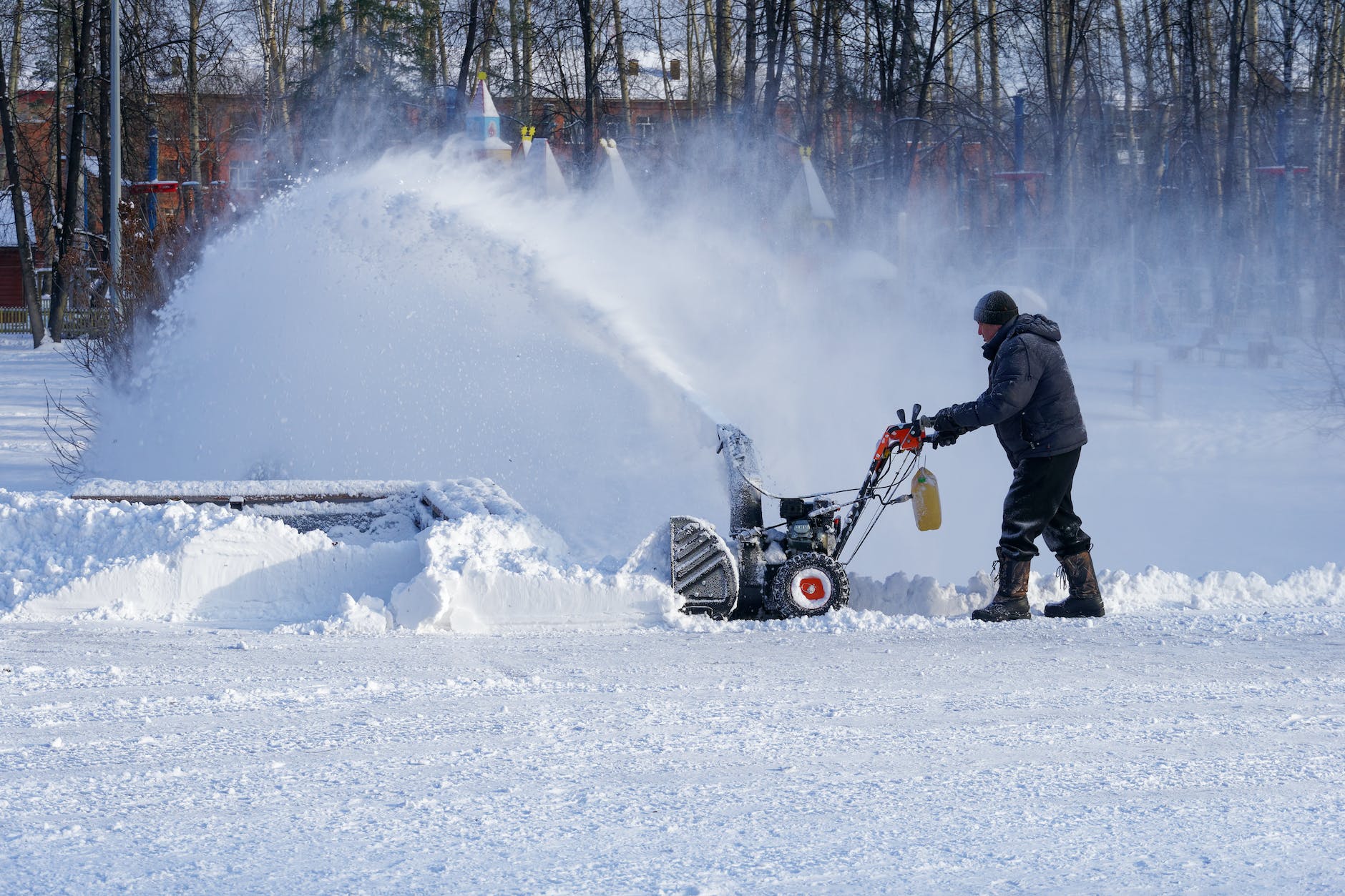Can a snowblower be stored outside? Sure. But should it? Let’s talk about some of the considerations and options.
Obviously, you have to do what you have to do. In many parts of the country, a snowblower is a necessity. Not going to work for winter isn’t really an option, and not everyone has a plow truck or heavy equipment for snow removal.
A snowblower is the optimal choice of snow removal equipment for the average homeowner. That being said, not everyone has the option of storing their snowblower inside.
Even if you do store it inside, should you?
If you have the opportunity to store a snowblower inside during the offseason, then yes I would recommend that. Provided that you drain the fuel first.
Storing a snowblower inside during the offseason prevents rust development from being in the elements. It’s also more difficult for rodents to take up residence and create nests.
Furthermore, storing the snowblower inside during the offseason will help keep water out of the fuel system. This water can and will eventually find its way into the combustion chamber and cylinder bore.
Left untreated, it can result in a seized engine. So, storing a snowblower inside during the offseason is a good idea.
What about during the winter season?
This is a trickier debate. Many people store their snowblowers inside during the winter months. On the one hand, this keeps the machine in better overall condition and ensures that it has the best chance of working when you go to use it.
On the other hand, there’s the potential of off-gassing from the fuel. Since the fuel tank is vented to the outside atmosphere, those fumes will escape into the outside environment.
Theoretically, this could fill your garage or storage space with a flammable mixture of gas fumes. While it’s not likely to reach the concentration range for an explosion hazard, it is possible.
What’s more likely is the harmful effects on your health breathing in those fumes every time you enter the garage.
The best case scenario would be to store a snowblower inside with the fuel removed. I realize that’s probably not realistic for most people, but it would be my optimal recommendation.
So what about storing a snowblower outside?
As mentioned, storing a snowblower outside is a safer option if you opt to leave the fuel in it. But, to do so appropriately, we have to take some measures to protect your equipment.
The dangers of storing a snowblower outside were mentioned previously and typically relate to rust. To combat rust, we need to prevent water exposure both internally and externally.
I recommend brushing your snowblower clear of snow prior to storing it. This will help the external ice/snow buildup and the eventual melting. Not only that, but it will make for easier operation the next time you go to use it.
Furthermore, it’s important to invest in a quality canvas tarp to cover your snowblower. This will help prevent water from entering the fuel system via the vented cap. It’ll also help keep the snow off your machine.
If it’s possible, consider storing your snowblower in an outdoor shed or under a porch; any added measure to keep the snow off will aid in the longevity of your machine.
Lastly, do your regular maintenance on your machine. Since it’ll be exposed to the elements, parts will have a tendency to need higher upkeep. Of primary importance is maintenance of the painted metal surfaces.
During the offseason, be sure to use a quality paint to keep all metal surfaces covered. That will go a long way towards preserving your equipment.
Recap
Yes, you can store your snowblower outside. For many people, it’s the only option. That being said, be sure to do so thoughtfully, and be diligent with your maintenance.
Did I forget anything? Let me know in the comments below.
As an Amazon Associate I earn from qualifying purchases.





3 thoughts on “Can a Snowblower Be Stored Outside?”